|
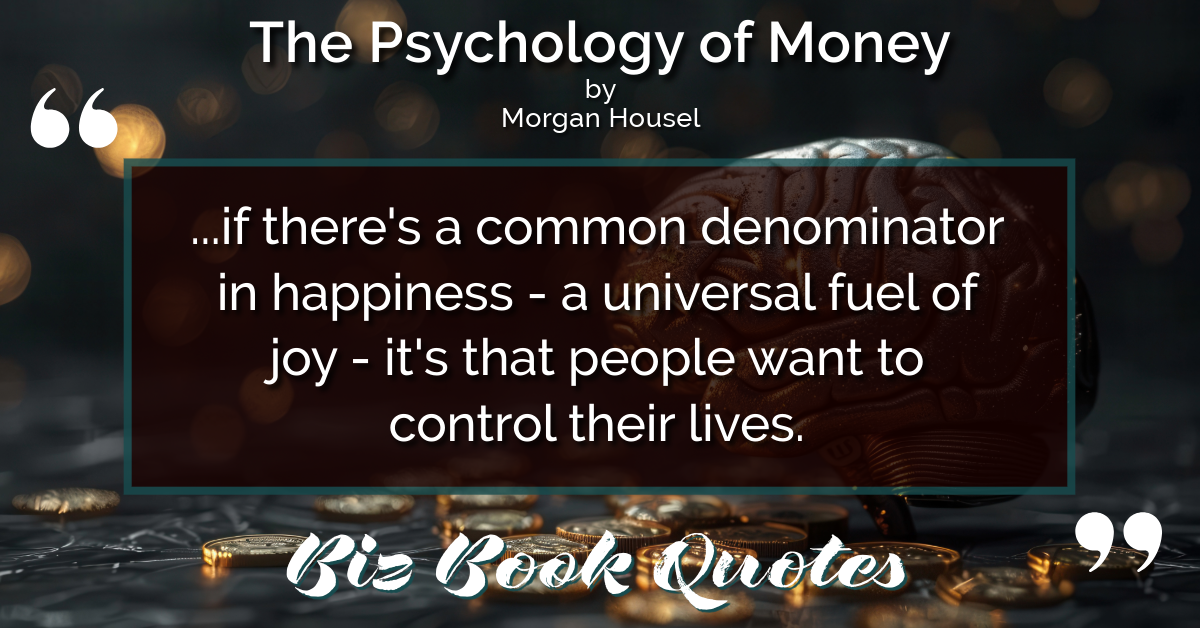
|
The Psychology of Money:
…if there’s a common denominator in happiness – a universal fuel of joy – it’s that people want to control their lives.
|
083 |
|
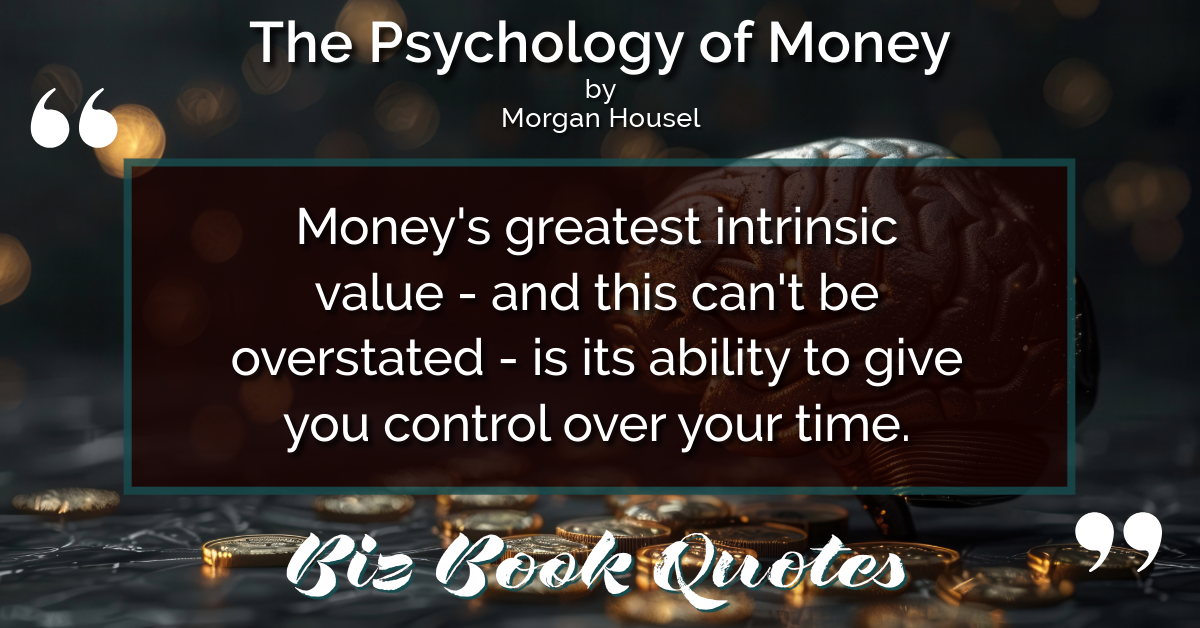
|
The Psychology of Money:
Money’s greatest intrinsic value – and this can’t be overstated – is its ability to give you control over your time.
|
084 |
|
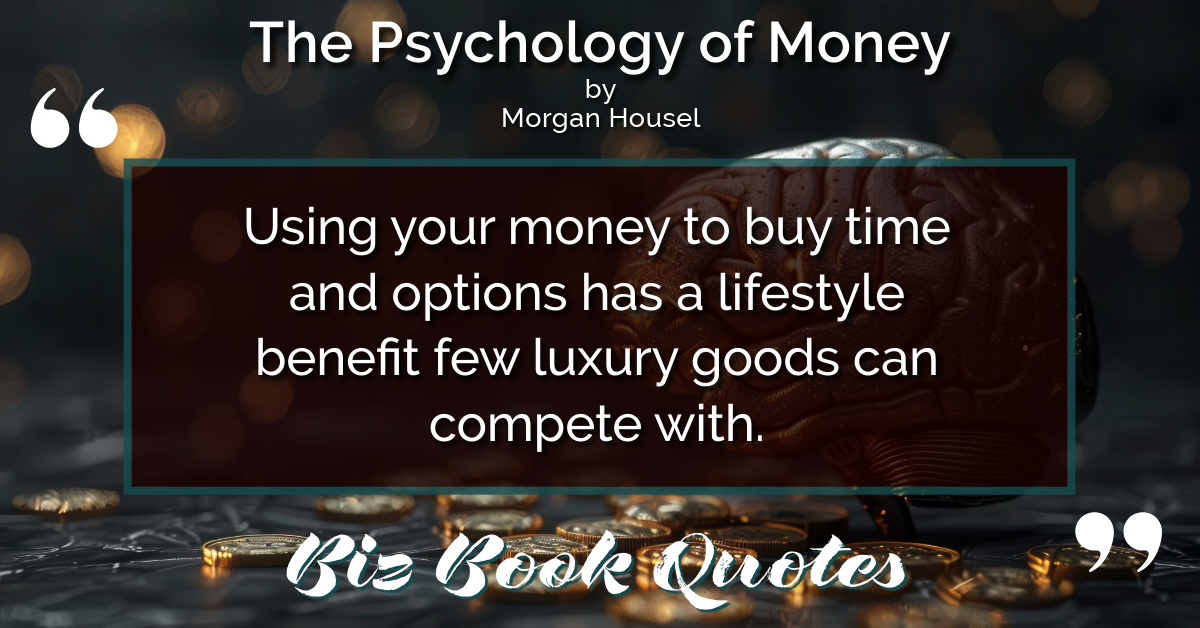
|
The Psychology of Money:
Using your money to buy time and options has a lifestyle benefit few luxury goods can compete with.
|
084 |
|
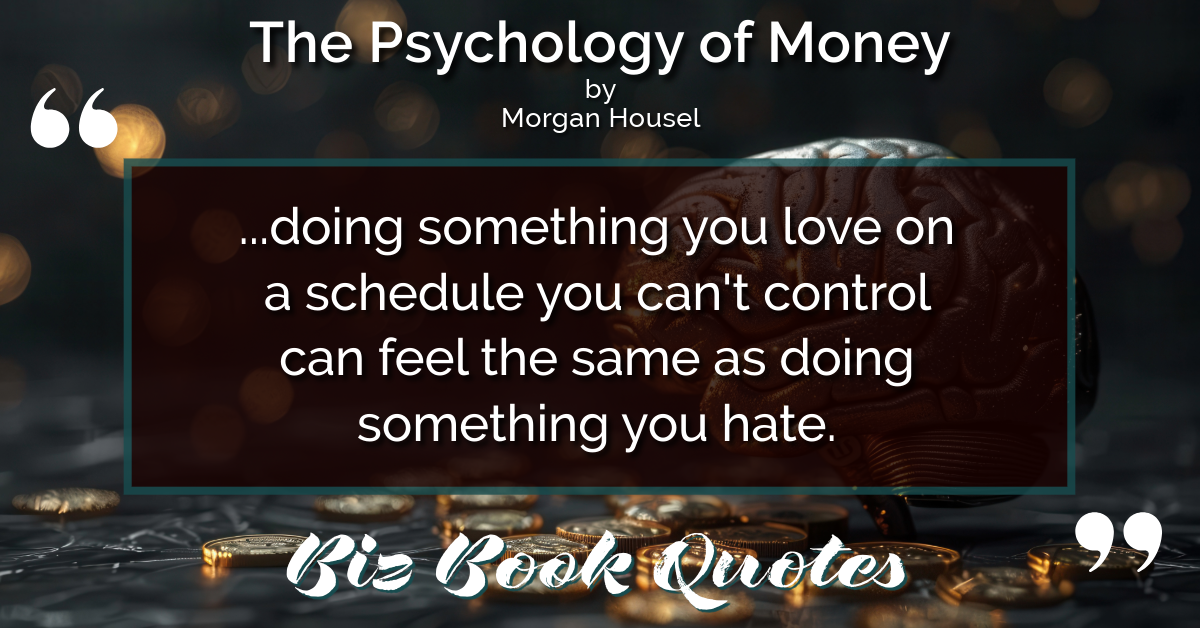
|
The Psychology of Money:
…doing something you love on a schedule you can’t control can feel the same as doing something you hate.
|
085 |
|

|
The Psychology of Money:
We’re constantly working in our heads, which means it feels like work never ends.
|
088 |
|
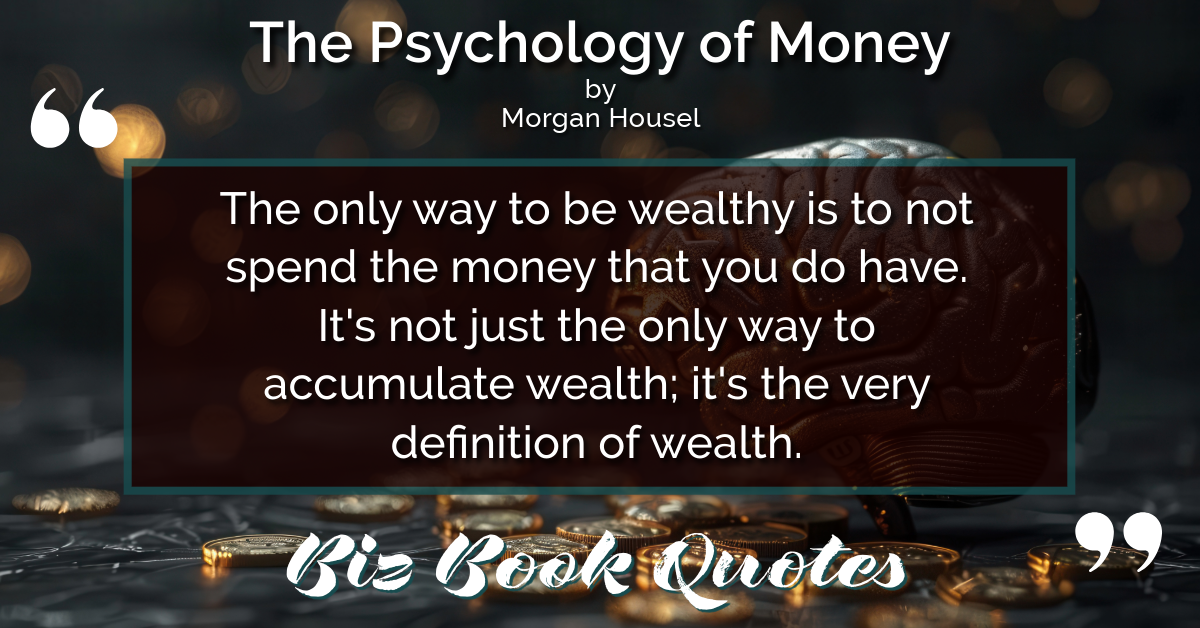
|
The Psychology of Money:
The only way to be wealthy is to not spend the money that you do have. It’s not just the only way to accumulate wealth; it’s the very definition of wealth.
|
098 |
|
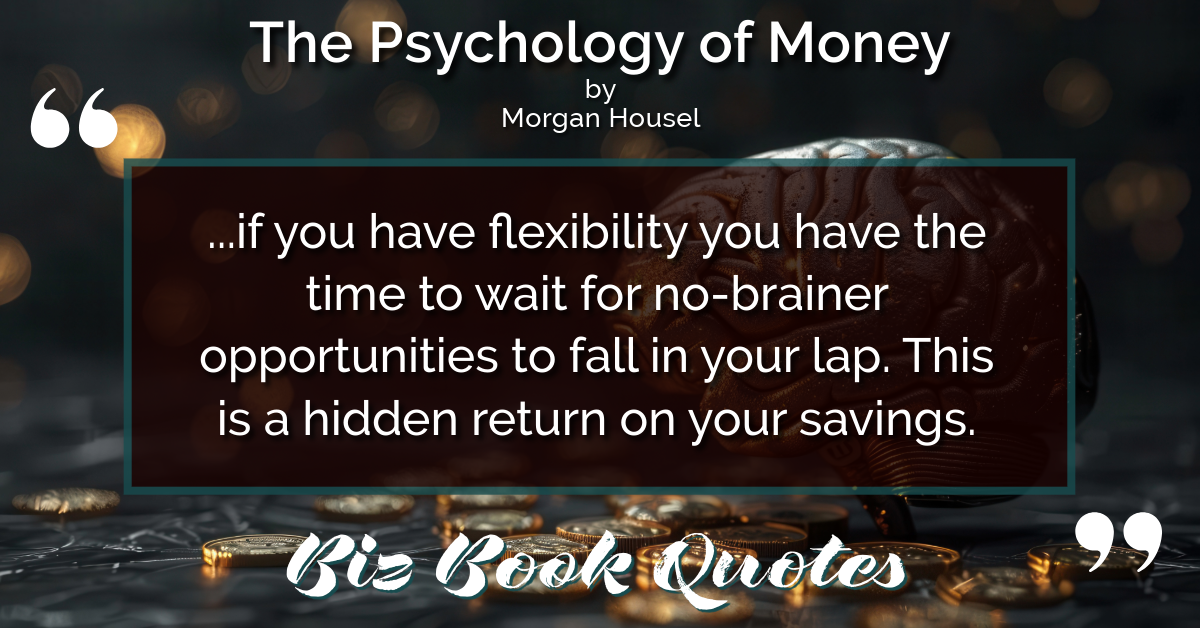
|
The Psychology of Money:
…if you have flexibility you have the time to wait for no-brainer opportunities to fall in your lap. This is a hidden return on your savings.
|
108 |
|
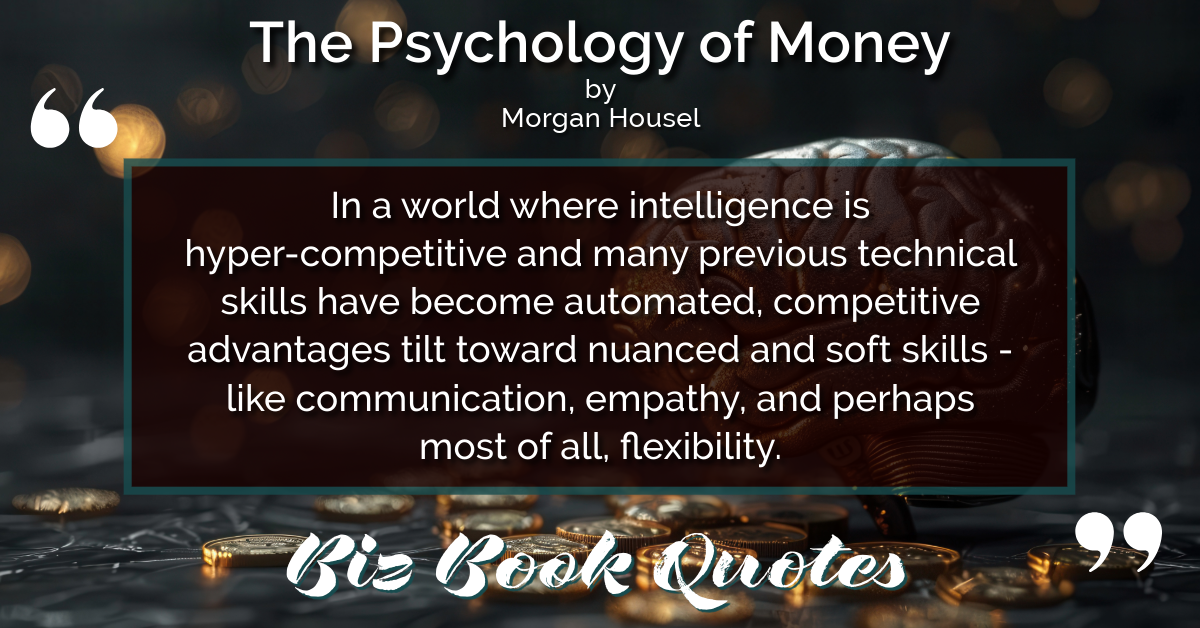
|
The Psychology of Money:
In a world where intelligence is hyper-competitive and many previous technical skills have become automated, competitive advantages tilt toward nuanced and soft skills – like communication, empathy, and perhaps most of all, flexibility.
|
109 |
|
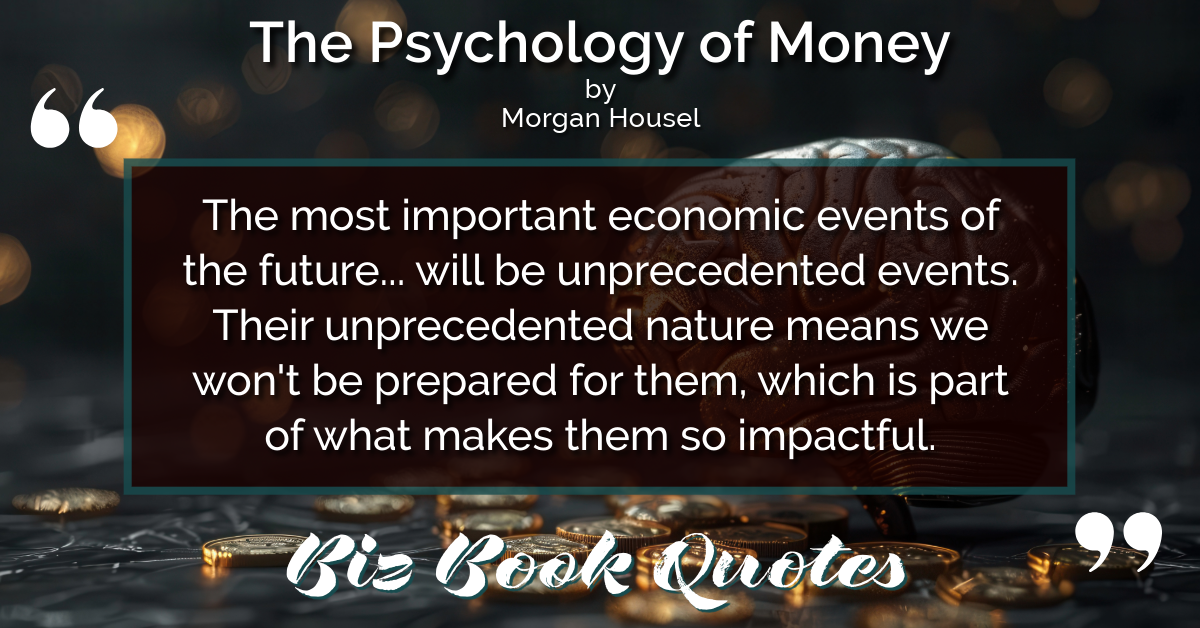
|
The Psychology of Money:
The most important economic events of the future… will be unprecedented events. Their unprecedented nature means we won’t be prepared for them, which is part of what makes them so impactful.
|
128 |
|
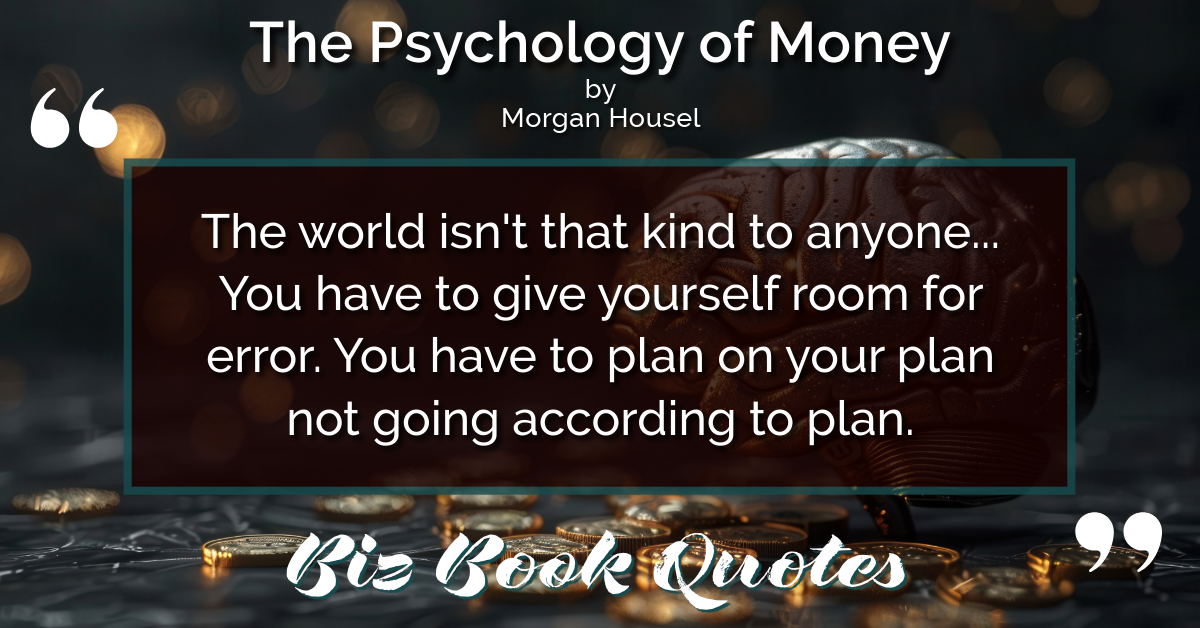
|
The Psychology of Money:
The world isn’t that kind to anyone… You have to give yourself room for error. You have to plan on your plan not going according to plan.
|
138 |











